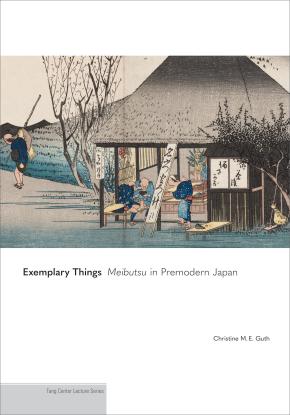Publications
Meibutsu in Premodern Japan

212 pp. | 10 × 7
The Japanese term meibutsu, literally “famous thing” or “thing with a personal name,” refers to articles of the highest cultural value, encompassing craft and fine art, elite and popular culture, and manufactured and natural items. Material goods designated as meibutsu range from precious objects used in tea practice, swords, and incense to regional products such as bamboo baskets, ceramics, and culinary specialties. As a category, meibutsu had a pervasive impact in organizing, evaluating, and documenting knowledge of Japan’s premodern material world. Exemplary Things traces the history of this cultural keyword from deployment in the lexicon of fifteenth-century art collecting to its nineteenth-century commercial appropriation and its legacy in Japan’s modern legislation for the protection of its National Treasures (Kokuhō). Richly illustrated, Exemplary Things casts the art history of Japan in a new light, showing how the epistemic concept of meibutsu blurs the lines between economic value, cultural and aesthetic worth, and the furtherance of political power.